Find Help
More Items From Ergsy search
-
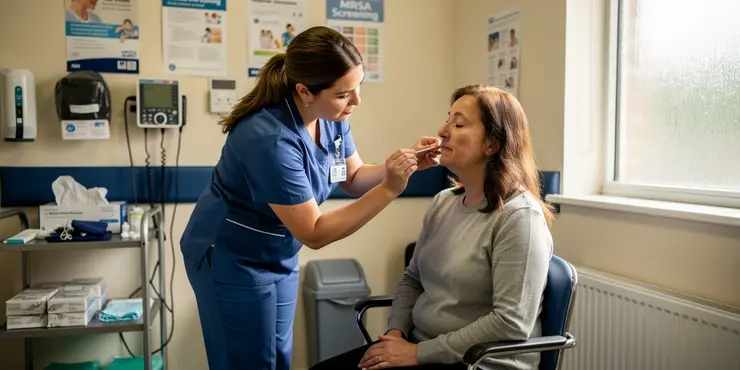
MRSA Screening at Chesterfield Royal Hospital NHS Foundation Trust
Relevance: 100%
-
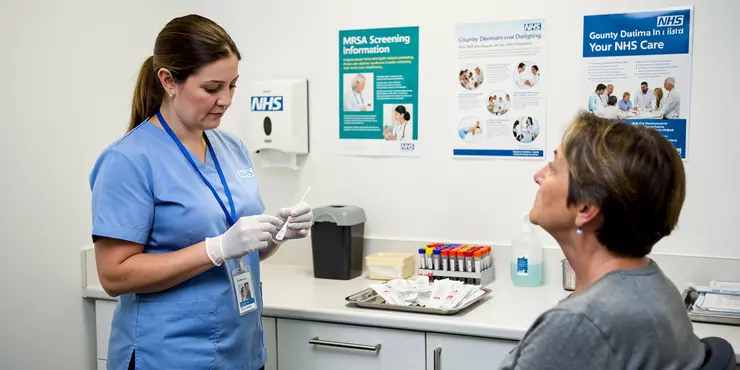
MRSA Screening at County Durham and Darlington NHS Foundation Trust
Relevance: 100%
-
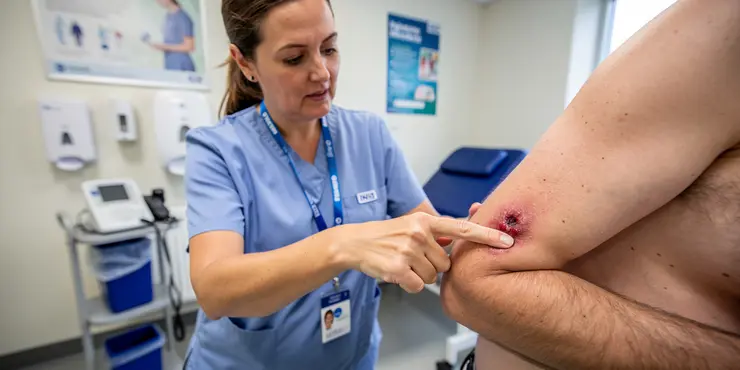
MRSA Bug
Relevance: 85%
-
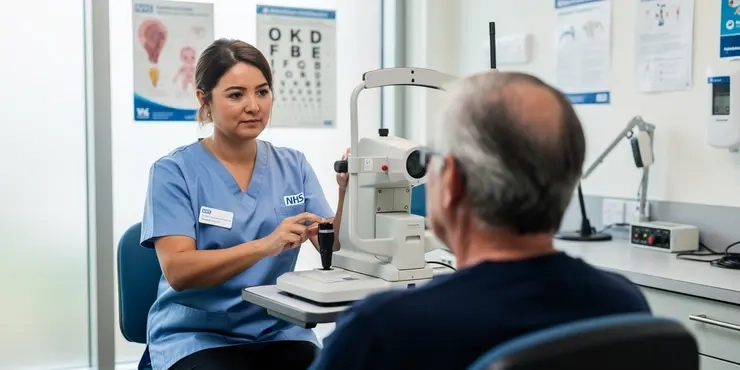
Derbyshire Diabetic Eye Screening - Diabetic Eye Screening
Relevance: 40%
-
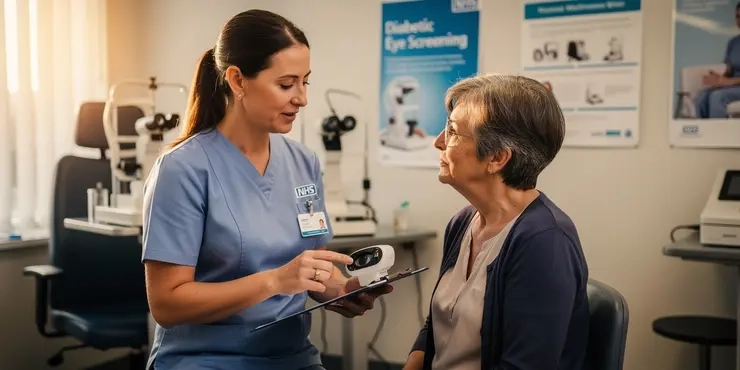
Derbyshire Diabetic Eye Screening - Your Screening Appointment
Relevance: 39%
-
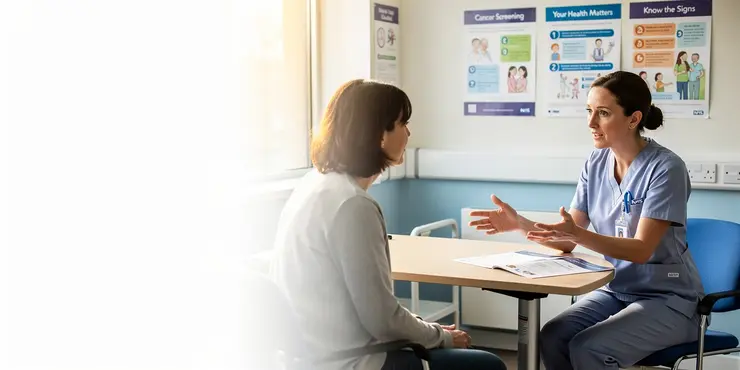
What is cancer screening?
Relevance: 39%
-
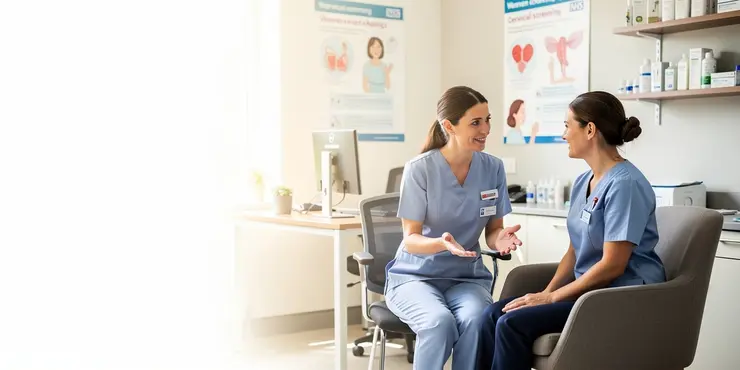
Cervical screening: Q&A | NHS
Relevance: 39%
-
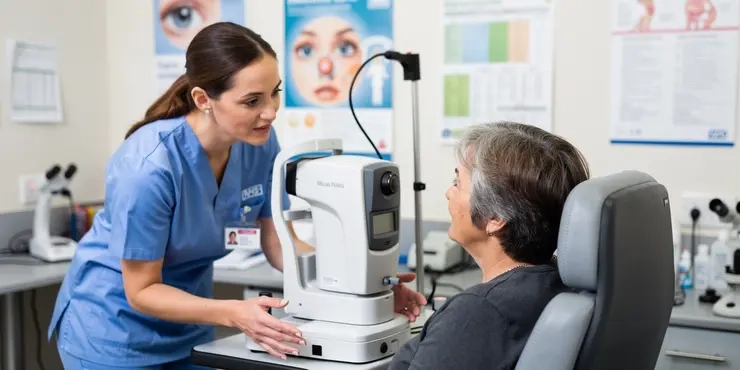
Diabetes Eye Screening
Relevance: 38%
-
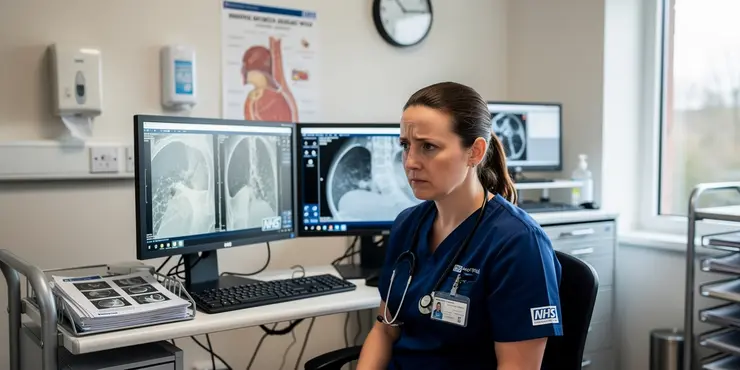
AI Breast Cancer Screening in the UK
Relevance: 38%
-
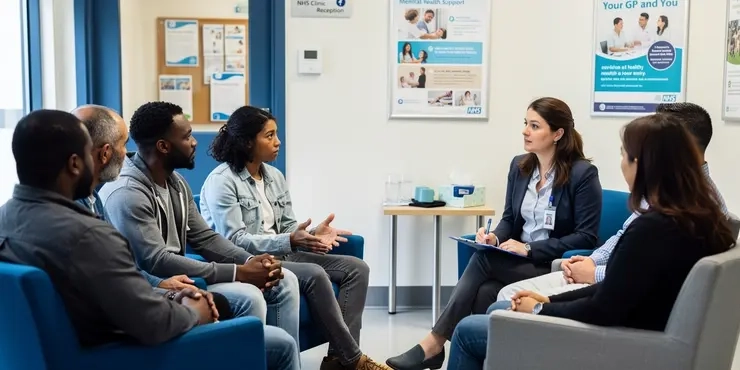
The asylum screening interview
Relevance: 38%
-
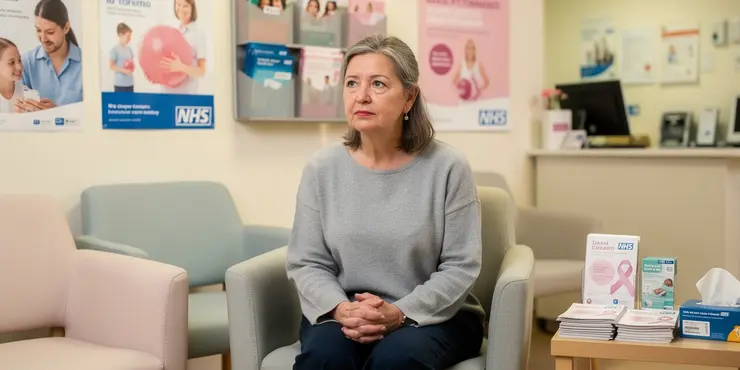
NHS breast cancer screening
Relevance: 37%
-

Are there eco-friendly mosquito screen options?
Relevance: 37%
-
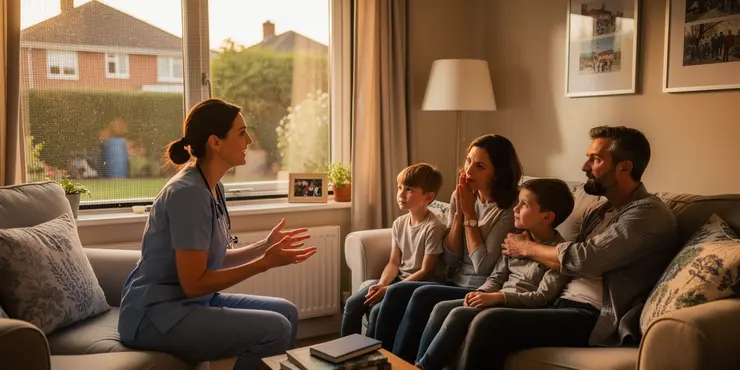
Are mosquito window screens effective in the UK?
Relevance: 37%
-
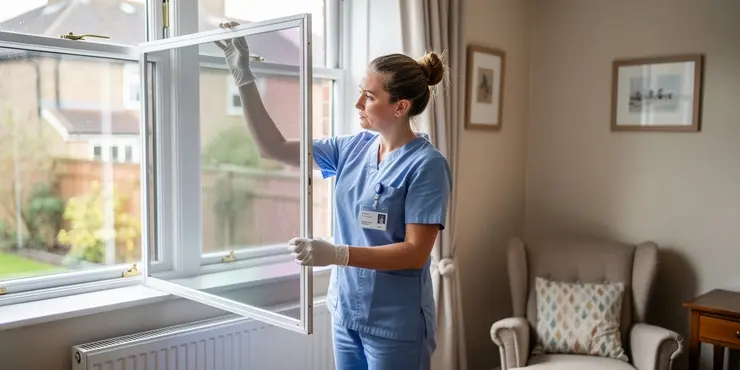
Are Mosquito window screens effective?
Relevance: 37%
-

Are there retractable mosquito screens available?
Relevance: 37%
-
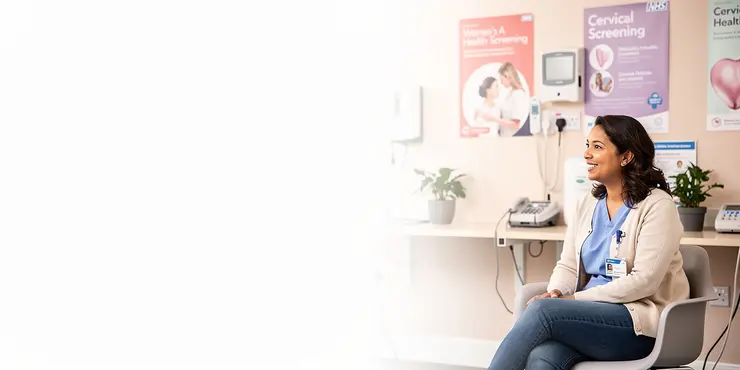
The NHS is #StillHereToHelp with cervical screening
Relevance: 37%
-
Is screening painful or risky for my child?
Relevance: 37%
-
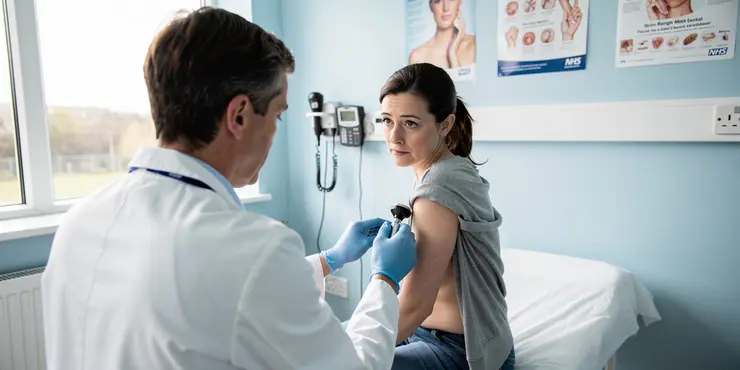
What is a skin cancer screening?
Relevance: 37%
-
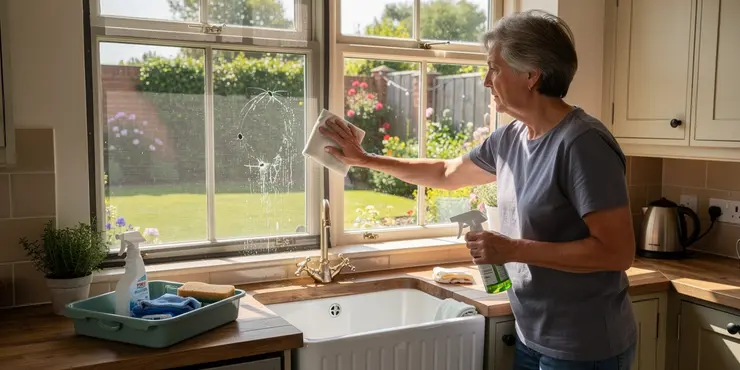
How do I maintain my mosquito screens?
Relevance: 37%
-

Can pets damage mosquito screens?
Relevance: 36%
-
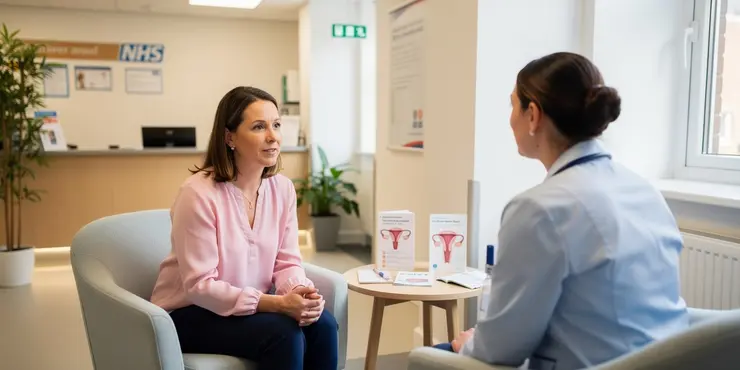
NHSGGC - Cervical Cancer Screening - English
Relevance: 35%
-
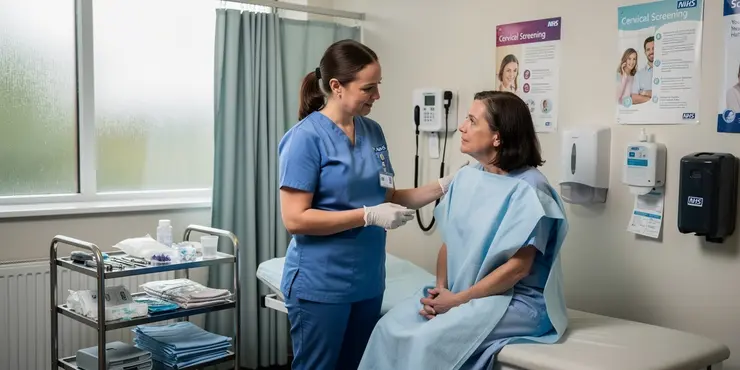
What is cervical screening (smear test)?
Relevance: 35%
-

Do mosquito screens add value to my home?
Relevance: 35%
-
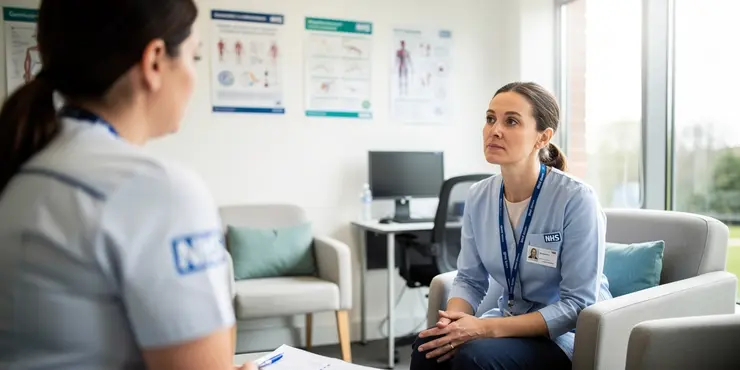
Is genetic screening available for cancer risk?
Relevance: 35%
-
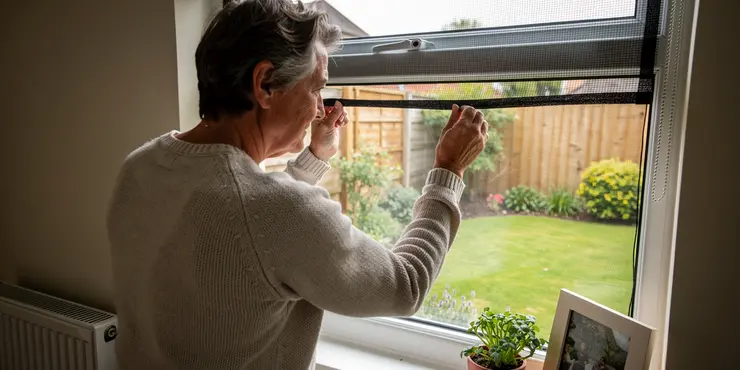
Are mosquito screens effective against midges?
Relevance: 35%
-
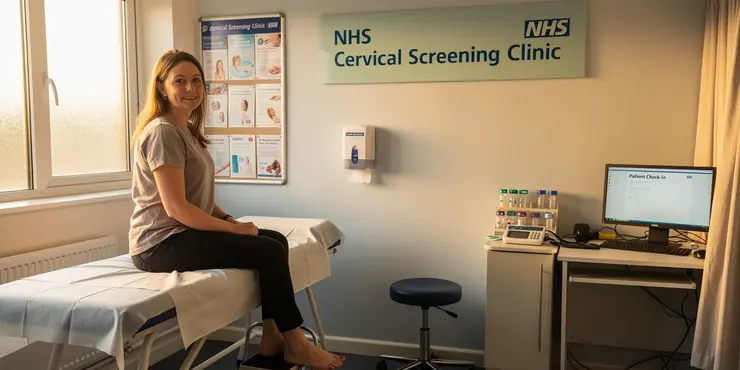
Cervical screening: what to expect | NHS
Relevance: 35%
-
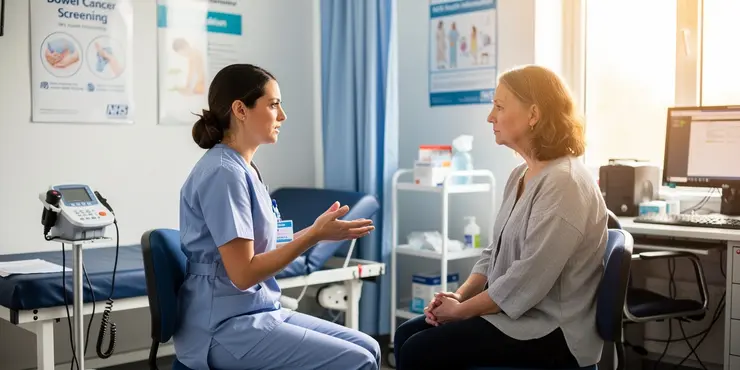
What kinds of cancer screening are available?
Relevance: 35%
-
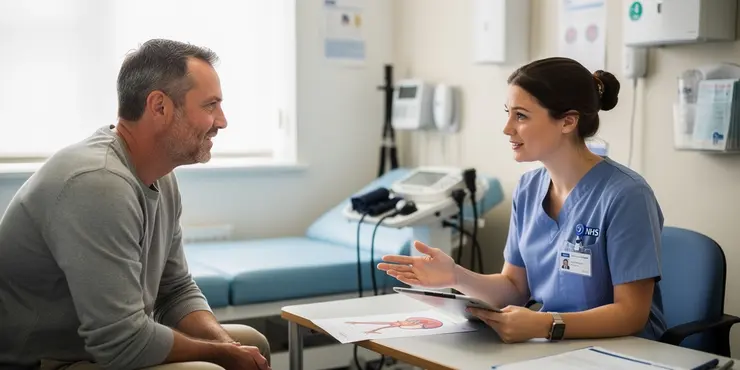
AAA (Abdominal aortic aneurysm) screening
Relevance: 35%
-
What are the limitations of type 1 diabetes screening?
Relevance: 35%
-
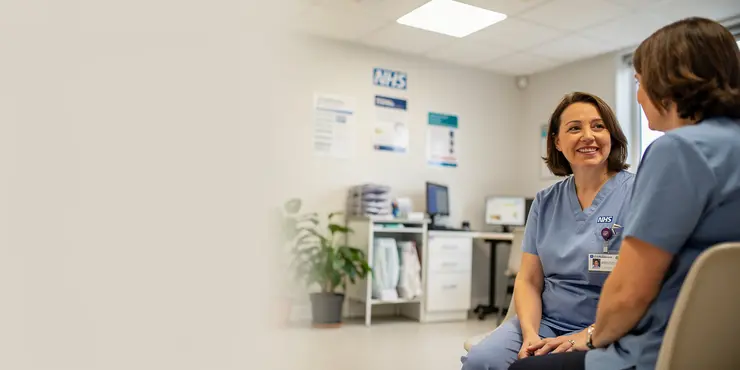
Do mosquito screens provide insulation benefits?
Relevance: 35%
-
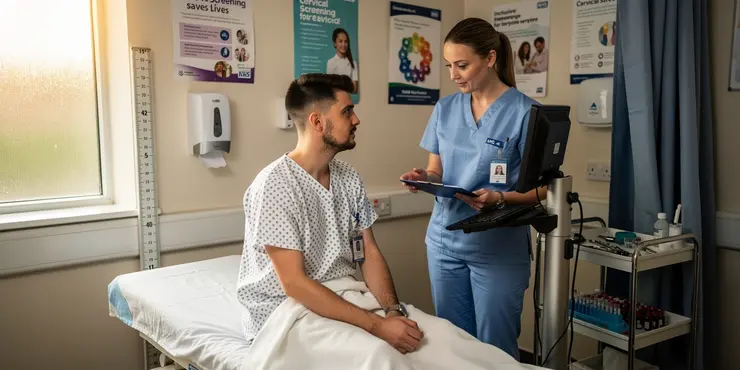
Cervical screening for transgender men | NHS
Relevance: 35%
-
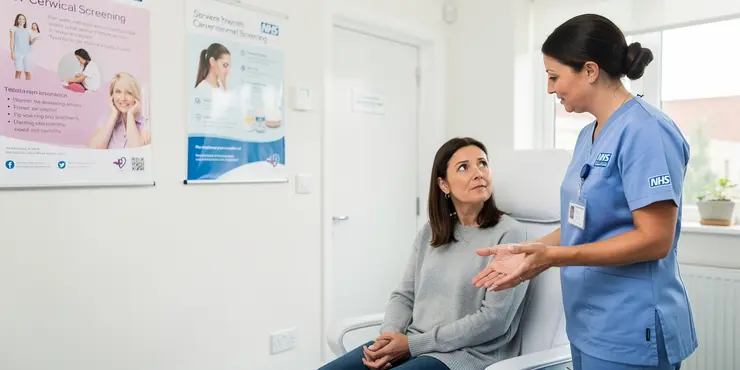
Cervical screening: how it's done | NHS
Relevance: 35%
-
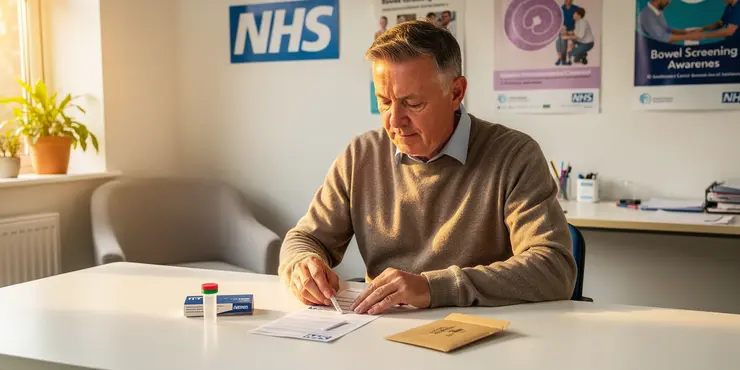
What are the recommendations for colorectal cancer screening?
Relevance: 35%
-
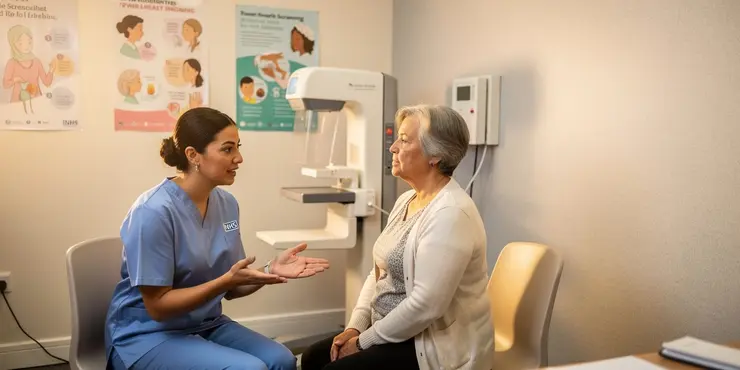
Tower Hamlets breast screening programme
Relevance: 35%
-
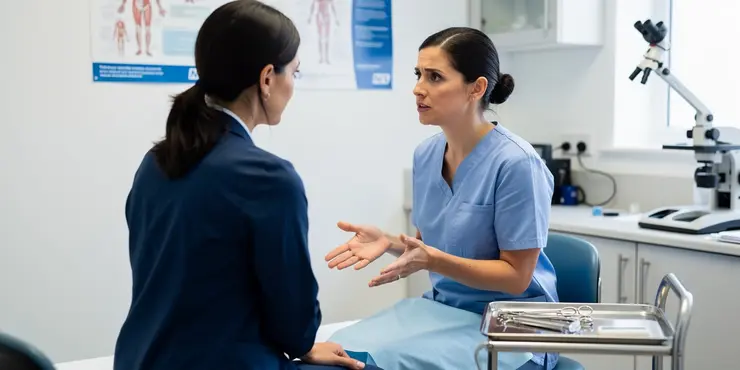
Cervical screening: what to expect | NHS
Relevance: 35%
-
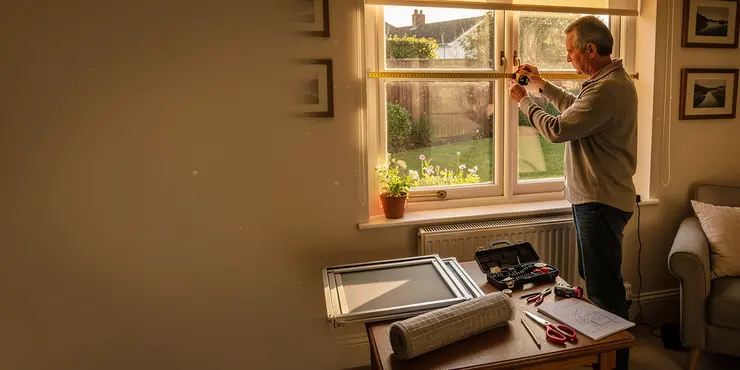
Can I install mosquito screens myself?
Relevance: 35%
-
Should I screen my child for type 1 diabetes?
Relevance: 35%
-
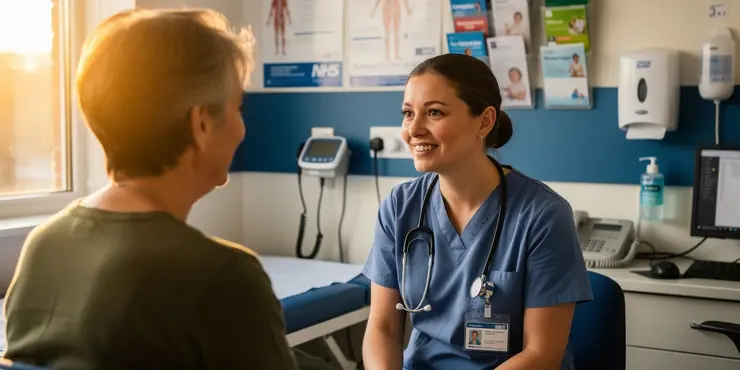
Can mosquito screens be used on doors as well?
Relevance: 34%
-
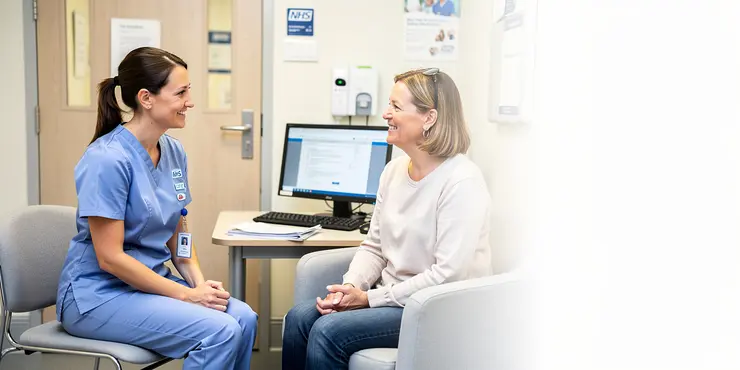
Health Screenings You Should Know About
Relevance: 34%
-
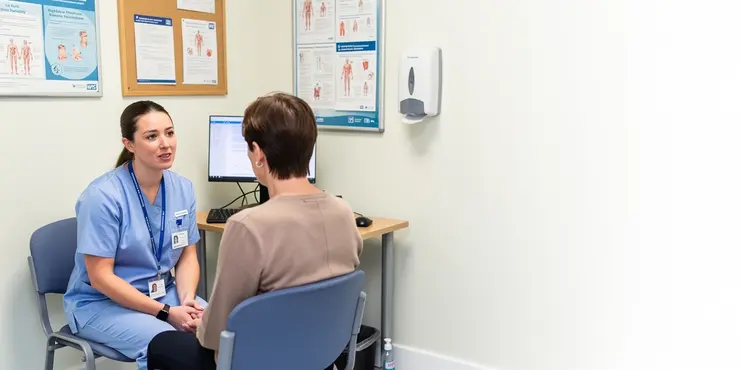
Will mosquito screens block out light or air?
Relevance: 34%
MRSA Screening at Chesterfield Royal Hospital NHS Foundation Trust
Introduction to MRSA
Methicillin-resistant Staphylococcus aureus (MRSA) is a type of bacteria resistant to several widely used antibiotics, making it more challenging to treat. Chesterfield Royal Hospital NHS Foundation Trust has implemented comprehensive MRSA screening procedures to identify and control the spread of this infection within its facilities.Screening Process
Upon admission, patients at Chesterfield Royal Hospital may undergo MRSA screening as part of routine infection control measures. This typically involves taking swabs from the nose, throat, and any areas of damaged skin. These samples are then sent to the laboratory for analysis to ascertain the presence of MRSA.Importance of Early Detection
Early detection of MRSA is crucial in preventing the spread of the infection within the hospital. By identifying carriers who may not show symptoms, healthcare professionals can take the necessary steps to isolate affected patients and implement appropriate treatment protocols, thereby protecting other patients and staff members.Preventive Measures
At Chesterfield Royal Hospital, stringent hygiene practices are enforced to minimize the risk of MRSA transmission. This includes regular handwashing, use of personal protective equipment (PPE), and thorough cleaning of hospital environments. Educational programs for both staff and patients emphasize the importance of these measures in infection control.Patient Care and Support
Patients who test positive for MRSA receive specialized care to manage and treat the infection. This may involve prescribed antibiotics to which MRSA is susceptible, along with additional precautions to prevent further transmission. The hospital's infection control team provides ongoing support and information to affected patients and their families.Commitment to Safety
Chesterfield Royal Hospital NHS Foundation Trust is dedicated to maintaining high standards of patient safety and care. Continuous monitoring, staff training, and adherence to national guidelines on infection control are key components of their strategy to combat MRSA. The hospital also collaborates with public health authorities to stay updated on best practices and emerging threats.Conclusion
MRSA screening at Chesterfield Royal Hospital NHS Foundation Trust is a critical aspect of their infection control program. Through early detection, preventive measures, and comprehensive patient care, the hospital strives to minimize the impact of MRSA and ensure a safe environment for all patients, visitors, and staff.MRSA Screening at Chesterfield Royal Hospital NHS Foundation Trust
What is MRSA?
MRSA is a type of germ that is hard to kill with some medicines. This makes it hard to treat. Chesterfield Royal Hospital checks for MRSA to stop it from spreading.How We Check for MRSA
When you come to the hospital, we might check you for MRSA. We do this by gently taking a sample from your nose, throat, and any sore skin areas. We send these samples to a lab to see if MRSA is there.Why is Early Detection Important?
Finding MRSA early helps stop it from spreading. Some people have MRSA and don’t feel sick. By finding it, we can keep these people apart and give them treatment. This keeps other people and our staff safe.How We Prevent MRSA Spread
We make sure everyone follows hygiene rules to keep MRSA from spreading. This means washing hands often, wearing protective clothes, and cleaning everything well. We teach staff and patients why these rules matter.Support for Patients
If you have MRSA, we give you special care and medicines that work. We also do extra things to stop it from spreading. Our team helps you and your family understand what to do next.Our Promise to Keep You Safe
We want everyone to be safe. We train our staff and follow important rules to fight MRSA. We also work with health experts to learn better ways to stop germs.Summary
Checking for MRSA is an important job at Chesterfield Royal Hospital. By finding it early and taking steps to prevent it, we keep everyone safe and healthy.Frequently Asked Questions
What is MRSA?
MRSA stands for Methicillin-Resistant Staphylococcus Aureus, a type of bacteria resistant to several antibiotics.
Why does the Trust screen for MRSA?
Screening for MRSA helps identify carriers and implement measures to prevent the spread of infection within the hospital.
Who needs to be screened for MRSA?
Patients admitted for surgery, those with certain medical conditions, and those transferred from other healthcare facilities are typically screened.
How is MRSA screening done?
Screening is usually done by taking swabs from the nose, throat, armpits, and groin area.
Is MRSA screening painful?
No, MRSA screening is a quick and painless procedure.
Do I need to be screened if I've been tested before?
Yes, even if you've been tested before, you may need to be screened again for the current admission or procedure.
What happens if I test positive for MRSA?
If you test positive, you may require decolonisation treatment to reduce or eliminate the bacteria, and additional infection control measures will be taken.
Can MRSA be treated?
Yes, MRSA can often be treated with specific antibiotics and decolonisation treatments.
Are visitors allowed if I test positive for MRSA?
Yes, but visitors may need to follow specific infection control measures, such as wearing protective clothing and washing hands before and after visiting.
Can MRSA be prevented?
Good hygiene practices, such as regular handwashing and keeping wounds covered, can help prevent the spread of MRSA.
How long does it take to get MRSA screening results?
Results are typically available within 2-3 days.
Will my MRSA status affect my treatment plan?
Your treatment plan may be adjusted to include measures to control MRSA and prevent infection.
Is there a cost for MRSA screening?
No, MRSA screening is provided free of charge as part of your care at Chesterfield Royal Hospital NHS Foundation Trust.
Can I refuse MRSA screening?
While you can refuse screening, it’s highly recommended to ensure your safety and the safety of others.
How does MRSA affect surgical procedures?
If you have MRSA, additional precautions will be taken during your surgery to prevent infection and promote healing.
What is MRSA?
MRSA is a type of germ. Germs are very tiny things that can make us sick. MRSA can make your skin hurt or give you a fever.
To stay healthy, wash your hands often. If you get a cut, clean it and tell an adult.
MRSA is a kind of germ that can't be killed by some medicines. MRSA stands for Methicillin-Resistant Staphylococcus Aureus.
Why does the Trust check for MRSA?
The Trust checks for MRSA to keep people safe. MRSA is a type of germ that can make people very sick.
By checking for MRSA, the Trust can help stop it from spreading to others.
It is important to find MRSA early. This way, doctors can give the right treatment to help people get better.
Using picture charts or asking a helper to explain can make this easier to understand.
Testing for MRSA helps find people who have it. Then, we can take steps to stop it from spreading in the hospital.
Who should get checked for MRSA?
MRSA is a type of germ that can make people sick. Doctors need to check some people to see if they have MRSA. Here are some people who might need to get checked:
- People going into the hospital
- People who live in long-term care homes
- People who have had MRSA before
- People who are around someone with MRSA
Doctors and nurses can help you understand if you need to get checked. They may use special cotton swabs or ask questions to find out more. It's okay to ask questions if you're not sure.
People who are going to have surgery, people with some health problems, and people who come from other hospitals usually get checked.
How do doctors check for MRSA?
Doctors use a special test to look for MRSA. They gently rub a cotton swab inside your nose or on your skin. This does not hurt. Then they send the swab to a lab to see if there are any MRSA germs.
If you find it hard to understand, you can:
- Ask someone to read it to you.
- Look at pictures or videos about MRSA tests.
- Use an app that reads text out loud.
To check for germs, doctors use a cotton stick to gently rub inside your nose, throat, under your arms, and the top of your legs.
If it's hard to read, you can ask someone to help. Listening to the words can also be helpful. You can use audiobooks or screen readers to hear the text.
Does MRSA Testing Hurt?
MRSA test is easy and quick.
It does not hurt.
A nurse will use a soft swab, like a cotton bud, to gently rub inside your nose or on your skin.
If you are worried, you can talk to someone like a nurse or doctor.
You can use things like breathing exercises or listening to music to help you feel calm.
No, checking for MRSA is quick and doesn't hurt.
Do I need a check-up if I had a test before?
If you had a test before, you might still need another check-up. Talk to your doctor. They can tell you if you need it again.
Here are some tips to help you understand:
- Ask your doctor questions if you are unsure.
- Use a calendar to mark when you need your next check-up.
- Bring a friend or family member to help you during visits.
Yes, you might have to do a test again, even if you did it before. This is because you are now coming in for something new.
What do I do if I have MRSA?
If you get a positive test result, you might need special treatment to get rid of the germs. Your doctor or nurse will also do extra things to stop the germs from spreading.
Can MRSA be treated?
Yes, doctors can treat MRSA. MRSA is a type of germ that can make you sick. But don't worry, there are special medicines to help fight the germ.
If you have MRSA, the doctor might give you medicine called antibiotics. It helps to kill the germ and make you better.
Sometimes, if the medicine doesn't work, the doctor may need to do other things to help you get well.
If you have questions, you can talk to someone who knows a lot about this, like a doctor or a nurse.
It might help to write down questions you have or ask someone to go with you to the doctor to help you remember what they say.
Yes, doctors can usually treat MRSA with special medicine called antibiotics. They also use other treatments to help get rid of it.
Can visitors come if I have MRSA?
If you have MRSA, you might wonder if friends or family can visit you. MRSA is a type of germ that can make people sick. So, it's important to be careful. You should ask your doctor or nurse. They will tell you what to do to keep everyone safe.
Here are some tips:
- Wash your hands often.
- Ask visitors to wash their hands too.
- Use hand sanitizer if soap and water are not available.
- Visitors should wear gloves or masks if the doctor says it's necessary.
Talking to your healthcare team can help you understand the best way to have visitors safely. They can give advice and answer any questions you have.
Yes, you can visit. But you might have to do some special things to keep germs away.
You might need to wear special clothes and wash your hands before and after your visit.
A tool like a reminder checklist can help you remember these steps.
Can we stop MRSA?
Yes, we can try to stop MRSA. MRSA is a type of germ that can make people sick.
Here are some tips to help stop MRSA:
- Wash hands with soap and water often.
- Keep cuts and scrapes clean and covered with a bandage.
- Don’t share personal items like towels or razors.
- Clean things that you touch a lot, like doorknobs and phones.
If you need more help, you can use pictures or videos to learn how to wash your hands and keep things clean. Remember to ask someone if you have questions. They can help you understand better.
Washing your hands often and covering up cuts can stop MRSA from spreading.
How long until you get MRSA test results?
The MRSA test checks for germs that can make you sick.
Getting the results can take a few days.
If you have questions, a doctor or nurse can help you.
Tools like a calendar can help you remember when the results might come.
You can usually get the results in 2 to 3 days.
Will my MRSA status change my treatment plan?
If you have MRSA, will your doctor change your treatment?
It is important to talk to your doctor.
Ask questions if you have any.
You can use easy tools like pictures or videos to understand better.
Your doctor's plan to help you might change. They will add steps to help stop MRSA and keep you from getting sick.
Do I have to pay for an MRSA test?
No, you do not have to pay for MRSA screening. It is free at Chesterfield Royal Hospital NHS Foundation Trust. This is part of the care you get.
Can I say no to the MRSA test?
It's okay to ask questions about the MRSA test. You can say no if you don't want it. Here are some things to help you:
- Talk to your doctor or nurse. They can tell you why the test is important.
- Ask a friend or family member to help you understand.
- Use picture books or videos to learn more about MRSA.
You can say no to getting checked, but it is a good idea to do it. It helps keep you and other people safe.
How does MRSA affect surgery?
MRSA is a type of germ that can make you sick. It can cause problems during surgery.
Doctors and nurses need to be very careful to keep things clean. This helps stop the germs from spreading.
If MRSA gets into a wound, it can make healing take a long time. This means it might take longer to get better after surgery.
Before surgery, doctors might give you medicine to help stop MRSA. After surgery, they will check your wound carefully.
Using pictures or talking to a helper can also make it easier to understand. They can help explain things in a way that makes sense to you.
If you have MRSA, the doctors will be extra careful during your surgery. This will help stop infections and help you get better.
Useful Links
This website offers general information and is not a substitute for professional advice.
Always seek guidance from qualified professionals.
If you have any medical concerns or need urgent help, contact a healthcare professional or emergency services immediately.
Some of this content was generated with AI assistance. We’ve done our best to keep it accurate, helpful, and human-friendly.
- Ergsy carfully checks the information in the videos we provide here.
- Videos shown by Youtube after a video has completed, have NOT been reviewed by ERGSY.
- To view, click the arrow in centre of video.
- Most of the videos you find here will have subtitles and/or closed captions available.
- You may need to turn these on, and choose your preferred language.
- Go to the video you'd like to watch.
- If closed captions (CC) are available, settings will be visible on the bottom right of the video player.
- To turn on Captions, click settings .
- To turn off Captions, click settings again.
More Items From Ergsy search
-

MRSA Screening at Chesterfield Royal Hospital NHS Foundation Trust
Relevance: 100%
-

MRSA Screening at County Durham and Darlington NHS Foundation Trust
Relevance: 100%
-

MRSA Bug
Relevance: 85%
-

Derbyshire Diabetic Eye Screening - Diabetic Eye Screening
Relevance: 40%
-

Derbyshire Diabetic Eye Screening - Your Screening Appointment
Relevance: 39%
-

What is cancer screening?
Relevance: 39%
-

Cervical screening: Q&A | NHS
Relevance: 39%
-

Diabetes Eye Screening
Relevance: 38%
-

AI Breast Cancer Screening in the UK
Relevance: 38%
-

The asylum screening interview
Relevance: 38%
-

NHS breast cancer screening
Relevance: 37%
-

Are there eco-friendly mosquito screen options?
Relevance: 37%
-

Are mosquito window screens effective in the UK?
Relevance: 37%
-

Are Mosquito window screens effective?
Relevance: 37%
-

Are there retractable mosquito screens available?
Relevance: 37%
-

The NHS is #StillHereToHelp with cervical screening
Relevance: 37%
-
Is screening painful or risky for my child?
Relevance: 37%
-

What is a skin cancer screening?
Relevance: 37%
-

How do I maintain my mosquito screens?
Relevance: 37%
-

Can pets damage mosquito screens?
Relevance: 36%
-

NHSGGC - Cervical Cancer Screening - English
Relevance: 35%
-

What is cervical screening (smear test)?
Relevance: 35%
-

Do mosquito screens add value to my home?
Relevance: 35%
-

Is genetic screening available for cancer risk?
Relevance: 35%
-

Are mosquito screens effective against midges?
Relevance: 35%
-

Cervical screening: what to expect | NHS
Relevance: 35%
-

What kinds of cancer screening are available?
Relevance: 35%
-

AAA (Abdominal aortic aneurysm) screening
Relevance: 35%
-
What are the limitations of type 1 diabetes screening?
Relevance: 35%
-

Do mosquito screens provide insulation benefits?
Relevance: 35%
-

Cervical screening for transgender men | NHS
Relevance: 35%
-

Cervical screening: how it's done | NHS
Relevance: 35%
-

What are the recommendations for colorectal cancer screening?
Relevance: 35%
-

Tower Hamlets breast screening programme
Relevance: 35%
-

Cervical screening: what to expect | NHS
Relevance: 35%
-

Can I install mosquito screens myself?
Relevance: 35%
-
Should I screen my child for type 1 diabetes?
Relevance: 35%
-

Can mosquito screens be used on doors as well?
Relevance: 34%
-

Health Screenings You Should Know About
Relevance: 34%
-

Will mosquito screens block out light or air?
Relevance: 34%


